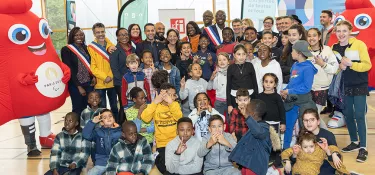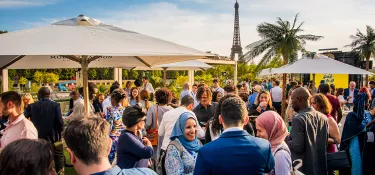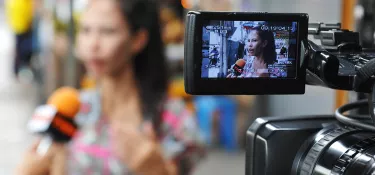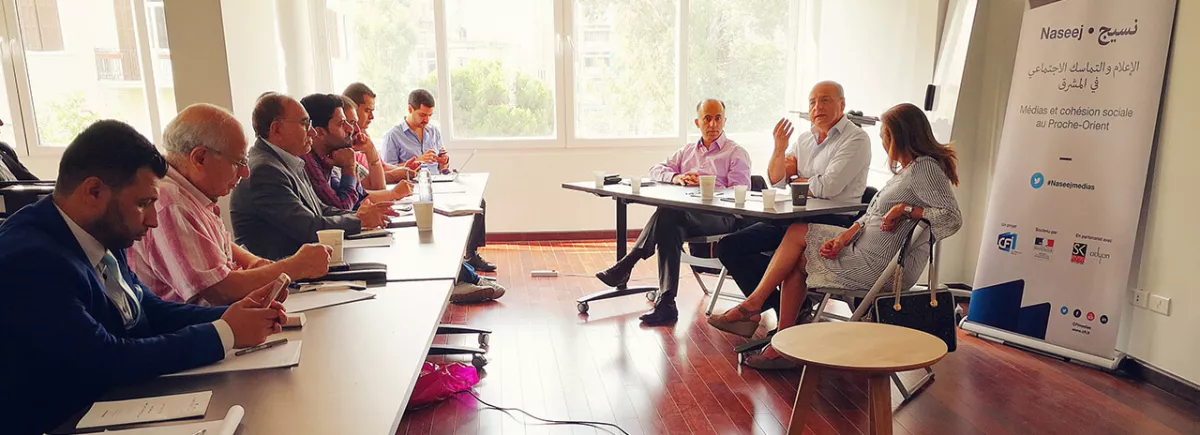
Diversity in the Iraqi media?
Related project
NaseejHow is religious, cultural and ethnic diversity reflected in the Iraqi media? Does each media outlet have its own editorial policy on religious, cultural and ethnic diversity?
Around ten Iraqi journalists gathered for a workshop in Beirut from 31 July to 1 August 2017 in order to address these issues openly and free from any taboo. Coming from a broad spectrum of the Iraqi media, participants exchanged viewpoints on what they saw as a journalist's role in maintaining national social cohesion.
In fact, in a country prey to division along communal lines, where political identity often goes hand in hand with religious persuasion, the media tend to become propaganda tools, and all the journalists present admitted to having had pressure placed on them in their work. Although boundaries vary depending on chosen editorial approach, the climate of the last two years - with the advent of Daesh - has led to a proliferation of sectarian viewpoints across social media or disseminated by certain less scrupulous media outlets.
Discussions were led by Ayman Mhanna, Executive Director of the SKeyes Center - Samir Kassir Foundation and provided an opportunity to draw parallels between the situations in Lebanon and in Iraq. Some attendees, in fact, took the view that the "Lebanisation" of Iraq has been under way for over ten years and that minorities are doomed to disappear. In point of fact, they no longer carry any weight in the affairs of society since the latter is perceived through its three major components, namely the Shia and Sunni Muslims and the Kurds, as pointed out by Nayla Tabbara, from the Adyan Foundation, when interviewed for the presentation of the results of a study conducted in March 2017.
Except for rare exceptions, ethnic or religious minorities are almost nowhere to be seen in 131 articles taken from across 13 media outlets. Furthermore, "a reading of the press shows that diversity within a single group is practically never addressed and the impression is therefore given that the point of view of a particular component of society is accepted by all its members, whereas this is not the case", she added.
The "non-exhaustive" study was aimed at encouraging participants to reflect, with a view to helping them better understand the coverage given to issues concerning minorities and thus to ponder the terminology used and the connotations arising out of it.
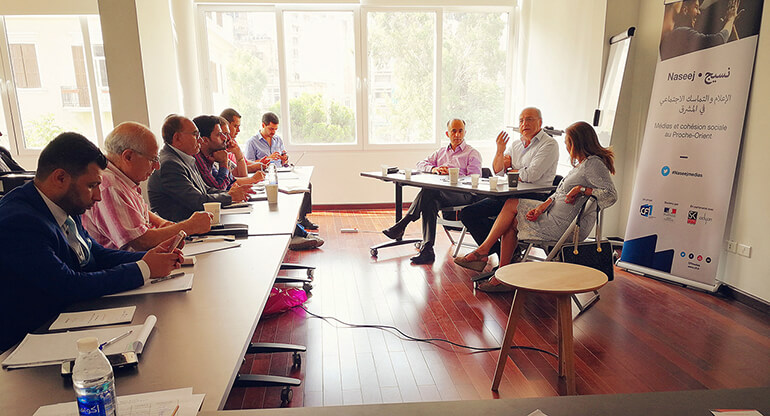
"We give no thought, on a daily basis, to the effect of our work on society. To exchange experiences is of paramount importance and this study has made us aware of the pitfalls to be avoided if we intend not to fan the flames but to improve our journalistic output." Montadhar Naser Khadem, Editor-in-Chief of Alam Al Jadid.
Looking ahead to the forthcoming referendum on the independence of Iraqi Kurdistan, and given the challenges facing the country in terms of reconciliation and pacification, all the journalists present stressed the importance of understanding Iraq's current situation, without seeking to minimize existing divisions.
"We have to take a realistic view of the media's role in our country and be aware of the effect of our work on society in terms of social cohesion", opined one of the participants.
That is the very essence of the term
Naseej, which gave its name to the project.
